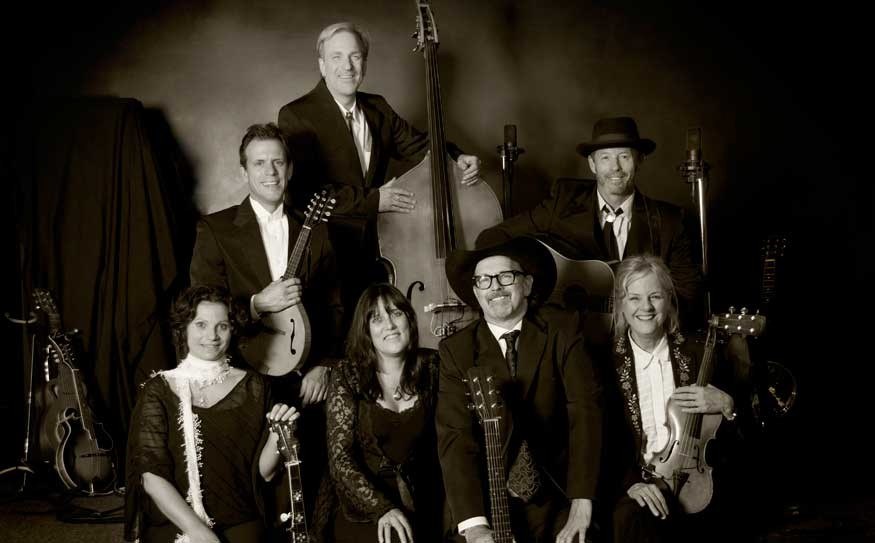The roots may seem like simple music. It's a guitar, some fiddle and some familiar chord changes. Nothing too extreme, right?
Well, take it from Barney Bentall — the roots become a whole lot more complex once you get down to playing it.
"It's deceptive in that way. It's a challenging music to learn how to play, particularly when learning how to play it well and fast enough," he says with a laugh, speaking in a cab while visiting Ottawa for the JUNOs.
The "we" in question is the High Bar Gang, often considered B.C.'s "roots supergroup." Consisting of Bentall, Shari Ulrich, Angela Harris, Colin Nairne, Eric Reed, Wendy Bird and Bob Becker, they state their case for the timelessness of bluegrass and roots and infusing it with their own West Coast twist.
Of course, for music purists, this idea is ripe for easy dismissal.
"We're never going to satisfy bluegrass purists," Bentall says. "They have very funny rules that they think should be followed and, you know, we're a bunch of rock and rollers and folkies. I think part of what we do is bring our own particular perspective to it."
The band started out as an idea Bentall and Nairne shared when they were younger, joking that they would start a Texas swing band or a bluegrass band once they were older. The older they became, the more plausible the project seemed.
"You're always looking for ways to evolve in your musical career and to kind of age with music and this seemed like a totally appropriate thing to do," Bentall says.
In 2010, Nairne, a music manager as well as a musician who had played with Bentall in the Legendary Hearts for 30 years, hand picked the other five musicians. His client, Ry Cooder, was instrumental in the band's development, choosing many of the songs that they now take to the stage, though he has yet to perform with them.
"Maybe one day. Regretfully he's not going to be coming to the Brackendale Art Gallery," Bentall says with a laugh.
Often in a seven-piece band, individual input or creative differences can be difficult to manage, but Bentall says since the High Bar Gang is only playing covers, there's no pressure to write or rewrite the songs. He says there's hardly any pressure at all when they play together. They just play the songs, with each member adding their own flare, reinterpreting each song in their own way.
"Part of the reason the people in this group were chosen was because (of) everybody's personality and the ability to work together," Bentall says.
The High Bar Gang harken back to a simpler period of musical expression, when musicians would play in six or eight piece bands at kitchen parties, without amplification or business involvement of any kind. The industry has changed greatly since then — for one, it's become an industry — and the High Bar Gang's very existence represents a re-connection to the humanity expressed in these classic songs.
"The way more complex the world becomes sometimes the drive for very simply forms of acoustic music," Bentall says. "I think it probably is a longing for a simpler time, or to remember that because simpler times where people just gathered and played instruments together."
They've been working on their second album, which Bentall calls their "gospel album," with hopes that it will be released this fall. He says it's being recorded with everyone in one room and two mics picking up the sound. They're quite literally keeping it old school.
And that's exactly the point. Bentall says playing with the High Bar Gang has been a "wonderful" way to broaden their musical knowledge and hone their skills as musicians.
"I plan to get out there and keep playing some nasty rock and roll, but I'm also intrigued with so many aspects of music and so many genres," he says.




